How to take potato juice for heartburn
Heartburn is a burning sensation behind the breastbone that occurs as a result of the reflux of gastric contents into the esophagus. This is the most characteristic symptom of many diseases of the digestive system. Patients often underestimate the significance of heartburn - they ignore the discomfort or, if it is mild, treat it themselves. This is dangerous due to complications and worsening symptoms.
Avoiding heartburn and preventing its occurrence in the future is only possible with an integrated approach to treatment. Therapy includes diet, balanced nutrition, and taking medications prescribed by a doctor.
As an addition to the main treatment, a gastroenterologist may recommend juice therapy. Unlike fresh vegetables and fruits, juices are easier to digest and digest in 10-15 minutes, and their energy reserves are used to nourish and restore the gastrointestinal tract. Potato juice is especially good for heartburn.
Chemical composition, microelements and characteristics of potato juice
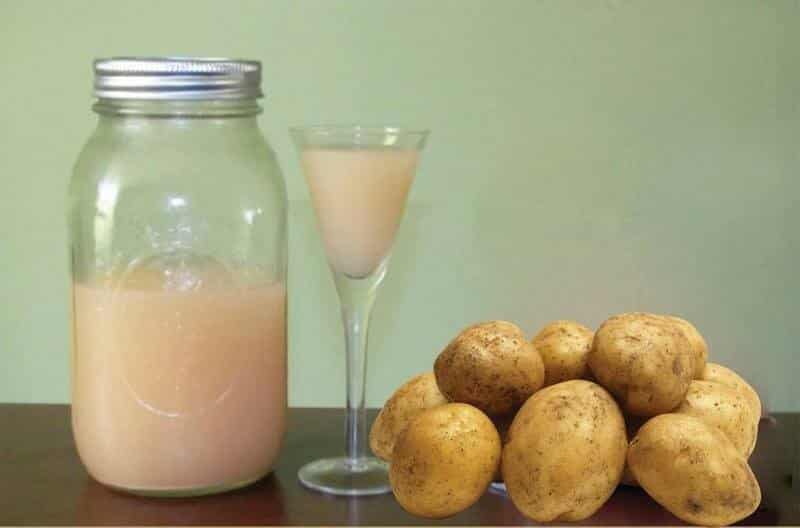
Chemical composition potatoes differs depending on the variety, growing conditions, maturity of tubers, terms and storage conditions.
The table shows the average nutritional content per 100 ml of potato juice:
| Organic acids | 0.2 g |
| Alimentary fiber | 1.4 g |
| Water | 78.6 g |
| Ash | 1.1 g |
| Vitamins | |
| Vitamin A, RE | 3 mcg |
| beta carotene | 0.02 mg |
| Vitamin B1, thiamine | 0.12 mg |
| Vitamin B2, riboflavin | 0.07 mg |
| Vitamin B4, choline | 11 mg |
| Vitamin B5, pantothenic acid | 0.3 mg |
| Vitamin B6, pyridoxine | 0.3 mg |
| Vitamin B9, folates | 8 mcg |
| Vitamin C, ascorbic acid | 20 mg |
| Vitamin E, alpha tocopherol, TE | 0.1 mg |
| Vitamin H, biotin | 0.1 mcg |
| Vitamin K, phylloquinone | 1.9 mcg |
| Vitamin RR, NE | 1.8 mg |
| Niacin | 1.3 mg |
| Macronutrients | |
| Potassium, K | 568 mg |
| Calcium, Ca | 10 mg |
| Silicon, Si | 50 mg |
| Magnesium, Mg | 23 mg |
| Sodium, Na | 5 mg |
| Sera, S | 32 mg |
| Phosphorus, Ph | 58 mg |
| Chlorine, Cl | 58 mg |
| Microelements | |
| Aluminium, Al | 860 mcg |
| Bor, B | 115 mcg |
| Vanadium, V | 149 mcg |
| Iron, Fe | 0.9 mg |
| Yod, I | 5 mcg |
| Cobalt, Co | 5 mcg |
| Lithium, Li | 77 mcg |
| Manganese, Mn | 0.17 mg |
| Copper, Cu | 140 mcg |
| Molybdenum, Mo | 8 mcg |
| Nickel, Ni | 5 mcg |
| Rubidium, Rb | 500 mcg |
| Selenium, Se | 0.268 mcg |
| Strontium, Sr | 9.28 mcg |
| Fluorine, F | 30 mcg |
| Chromium, Cr | 10 mcg |
| Zinc, Zn | 0.36 mg |
| Zirconium, Zr | 3.03 mcg |
| Digestible carbohydrates | |
| Starch and dextrins | 15 g |
| Mono- and disaccharides (sugars) | 1.3 g |
| Glucose (dextrose) | 0.6 g |
| Sucrose | 0.6 g |
| Fructose | 0.1 g |
| Essential amino acids | 1.81 g |
| Nonessential amino acids | 1.042 g |
| Saturated fatty acids | 0,176 |
| Monounsaturated fatty acids | 0.166 g |
| Polyunsaturated fatty acids | 0.335 g |
Calorie content, BJU and nutritional value of potato juice
The energy value of potato juice is 77 kcal. 100 ml contains:
- proteins - 2 g;
- fat - 0.4 g;
- carbohydrates - 16.3 g.
What vitamins and beneficial properties are present in potato juice?
Potato juice provides cells and tissues with enzymes and elements that the body needs, while delivering them in a form accessible for absorption.
Nature generously endowed potatoes with useful substances and macroelements. In addition to traditional proteins, fats and carbohydrates, tubers contain a wide range of vitamins:
- Vitamin A (beta-carotene) normalizes metabolism, neutralizes the oxidative effect of free radicals, increases the protection of mucous membranes, and accelerates tissue regeneration.
- Vitamin B1 (thiamine) is necessary for the normal development and growth processes, maintaining the health of the nervous system, gastrointestinal tract, heart and blood vessels, and thyroid gland.
- Vitamin B2 (riboflavin) is involved in the metabolism of fats, proteins and carbohydrates, supports energy production and reproductive functions, and promotes oxygen saturation in the blood.
- Vitamin B3 (niacin) reduces the concentration of cholesterol in the blood, dilates blood vessels and improves microcirculation, and maintains healthy skin.
- Vitamin B5 (pantothenic acid) activates the formation of adrenal hormones, takes part in metabolic processes, and slows down aging.
- Vitamin B6 (pyridoxine) normalizes lipid metabolism, protects the body from sudden fluctuations in blood glucose levels, increases brain performance, improves memory and mood, and ensures proper liver function.
- Vitamin B9 (folate) takes an active part in the processes of growth and development of the immune and circulatory systems, regulates the metabolism of purines and amino acids, and increases physical and mental performance.
- Vitamin C (ascorbic acid) accelerates tissue regeneration, takes part in the synthesis of collagen and steroid hormones, promotes the deposition of glycogen in the liver, restores thyroid function, and stimulates the secretion of bile.
- Vitamin E (alpha tocopherol) prevents free radical reactions, increases the strength and elasticity of capillaries, blocks the production of bad cholesterol, normalizes nutrition and contractility of the heart muscle.
- Vitamin H (biotin) normalizes intestinal microflora, prevents hair and nails from becoming brittle, activates the functioning of the stomach and intestines, and is important for tendons.
For the human body
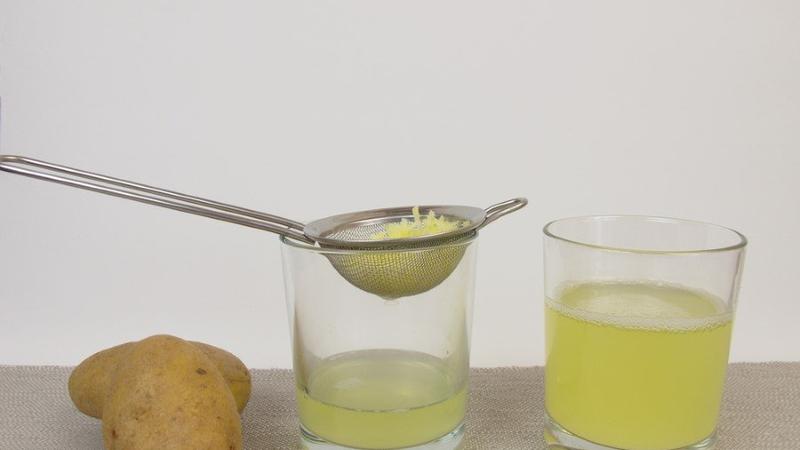
It is recommended to take potato juice when there is an increased need for nutrients and energy, high emotional and physical stress, chronic fatigue, and during the recovery period after serious illnesses. Potato juice can be prescribed as part of a complex treatment for diseases of the heart, blood vessels, and neurological pathologies.
In folk medicine, grated potatoes are used externally for eczema, skin diseases, wounds, cuts and other skin lesions. The vegetable accelerates the healing of tissues and increases their protection. Having anti-inflammatory and analgesic properties, potatoes alleviate the condition of people with diseases of the musculoskeletal system (rheumatism, gout, osteochondrosis).
Fresh potato juice is a vitamin remedy that protects against flu and colds. Regular consumption of the drink helps maintain the health of the heart and blood vessels. The vegetable has a diuretic effect, removes waste and toxins from the body, increases the strength and elasticity of vascular walls and capillaries, improves blood microcirculation, and reduces the level of “bad” cholesterol. This is an effective means of preventing hypertension, coronary heart disease, myocardial infarction and complications associated with these diseases.
Potatoes have a beneficial effect on the functioning of the nervous system: it stabilizes emotional balance, activates brain functions, and normalizes falling asleep and sleep quality.
For reference. Potato juice is a popular cosmetic product. At home, it is used as a component of moisturizing, nourishing masks. The vegetable reduces the appearance of pigmentation, protects against damaging factors and UV rays, tones, refreshes, and slows down the aging process.
Especially for the gastrointestinal tract
One of the most important effects of potato juice on the human body is cleansing the digestive system. The vegetable is rich in fiber, which has a powerful absorbent effect - it does not allow digested food to linger in the body, stimulates intestinal motility, and normalizes metabolism.
Other beneficial properties of fiber for the body:
- improves digestion;
- regulates blood cholesterol levels;
- helps cope with existing constipation;
- maintains normal intestinal microflora and prevents the development of dysbacteriosis.
Retinol, contained in potato tubers, increases the protection of mucous membranes, accelerates regeneration processes, and acts as a powerful antioxidant.
A high level of ascorbic acid in combination with B vitamins enhances the body’s protective functions and prevents the strengthening and proliferation of pathogens on the surface of the mucous membrane of the gastrointestinal tract. Potato juice is used as an anti-inflammatory agent for digestive problems. It also helps relieve the severity of symptoms of gastroenterological pathologies - retrosternal burning, nausea, vomiting, pain in the sternum and back.
Read also:
Benefits for beauty and figure
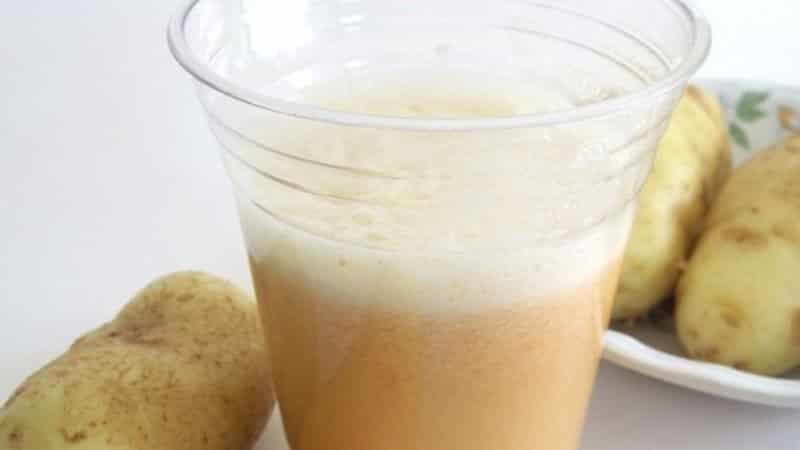
Potatoes will help you maintain a given weight or get rid of unnecessary pounds. The statement that a vegetable can cause excess weight is true in cases where you enjoy fried potatoes in oil or season your dish with high-calorie sauces.
To be beneficial for your figure and health, potatoes should be present in the diet either baked or in the form of freshly squeezed juice. In this case, it preserves all valuable substances as much as possible.
A properly grown vegetable without the use of nitrates is a source of micro- and macroelements, vitamins, and enzymes important for the body. Plant fiber is of particular importance for the figure. It quickly causes a feeling of fullness - it remains in the stomach for a relatively long time, which allows you to get enough of one small portion and refuse additional snacks.
Fiber also increases endurance and performance, stimulates physical activity, which leads to additional calorie burning and weight loss.
Vitamin complex supports skin health:
- vitamin A increases collagen production, makes the skin elastic and firm, reduces the appearance of cellulite;
- B vitamins saturate tissues with oxygen, normalize blood circulation processes, and take part in the formation of blood cells and metabolism;
- Vitamin C prevents cell damage from free radicals, slows down the aging process, and prevents the formation of wrinkles;
- Vitamin E transports oxygen to subcutaneous tissues, activates the process of fat breakdown and accelerates their removal to the outside.
What health problems should you drink potato juice for?
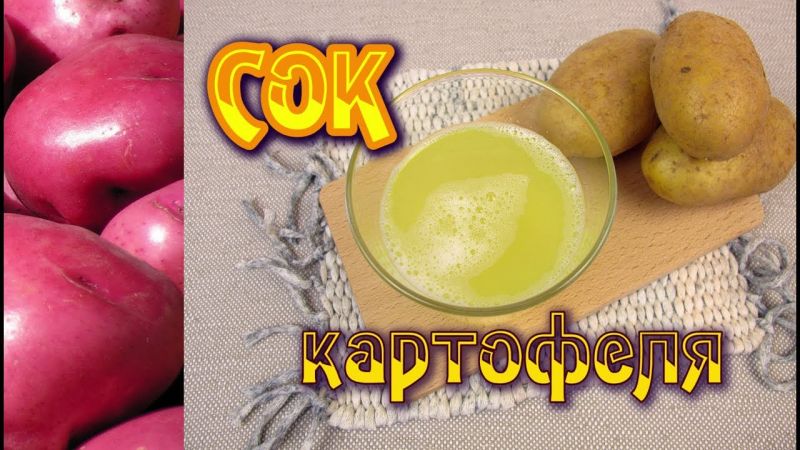
Experts recommend taking potato juice for the treatment and prevention of many painful conditions, but it is especially popular for pathologies of the digestive system.
Juice is prescribed as an auxiliary method to the main treatment of diseases and conditions such as:
- peptic ulcer of the stomach and duodenum;
- erosive and ulcerative lesions of the digestive system;
- gastritis with high acidity;
- inflammation of the esophagus (esophagitis);
- cholelithiasis;
- ulcerative colitis;
- intestinal dysbiosis;
- stomach cancer.
If heartburn is a symptom of digestive diseases, then juice therapy alone will not be enough to achieve stable remission and stop the progression of the disease. Effective therapy is possible subject to compliance with dietary rules and the use of medications.
Potato juice in this tandem alleviates the severity of symptoms, enhances the effect of medications, reduces the need for them, and shortens treatment time.
Advice. The juice is consumed immediately after preparation, since its storage leads to oxidation and loss of beneficial properties. As a last resort, you should store the drink in a glass container with a lid in the refrigerator for no longer than 3-4 hours.
Beneficial properties of potato juice for heartburn
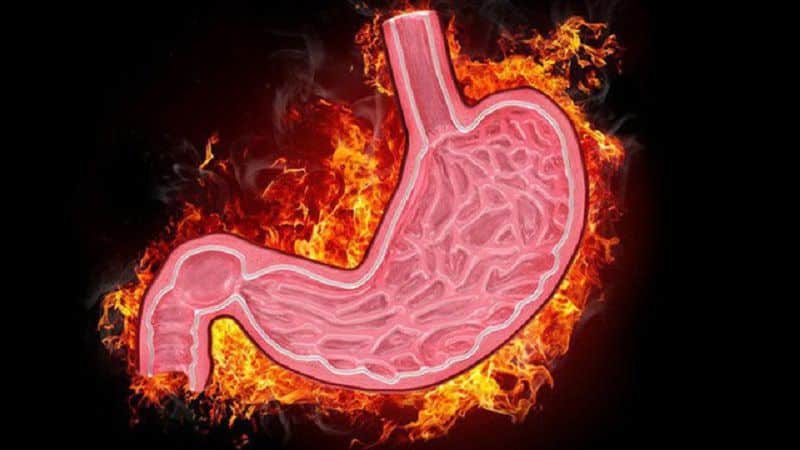
Potato juice reduces the acidity of gastric juice and has an enveloping effect, eliminating the negative impact of damaging factors on the mucous membranes of the gastrointestinal tract. It also acts as a symptomatic remedy: it reduces the severity of a burning sensation and associated symptoms such as stomach pain, belching, nausea, and vomiting.
Potato juice has a pronounced diuretic effect, rids the intestines of accumulated waste and toxins, and reduces cholesterol levels.It has a laxative effect, which is especially important for people suffering from constipation.
If the burning sensation behind the sternum is caused by gastroenterological diseases, then their potato juice is used as an anti-inflammatory, wound-healing, and antimicrobial agent.
How to use potato juice for heartburn
Before you begin treating heartburn with potato juice, you will need to consult a specialist to determine the causes of the unpleasant symptom. After diagnosis, complex therapy of the underlying disease is carried out.
Potato juice for heartburn may be recommended as an adjuvant treatment.. It can be taken as an independent medicine in cases where heartburn occurs periodically and is not associated with gastrointestinal diseases, liver or kidney damage.
The duration of treatment and the dosage of potato juice are determined by the doctor, taking into account the causes of heartburn and the presence of concomitant pathologies. Since the vegetable does not contain aggressive chemical compounds, the effect of such treatment will be cumulative. The course lasts 10-14 days. After a two-week break, the treatment is repeated.
How, when and in what quantity to drink potato juice for heartburn depends on the underlying disease:
- For gastritis, freshly prepared juice is taken on an empty stomach, 200 ml. The next meal is possible no earlier than half an hour later.
- With increased acidity, the dosage is reduced to 100-150 ml of juice, which is taken an hour before meals.
- For peptic ulcers of the stomach and duodenum, drink juice half an hour before meals according to the following scheme: five days, 50 ml of the drink, the next 5 days - 100 ml, and another 5 days - 200 ml.
Recipes and application diagrams
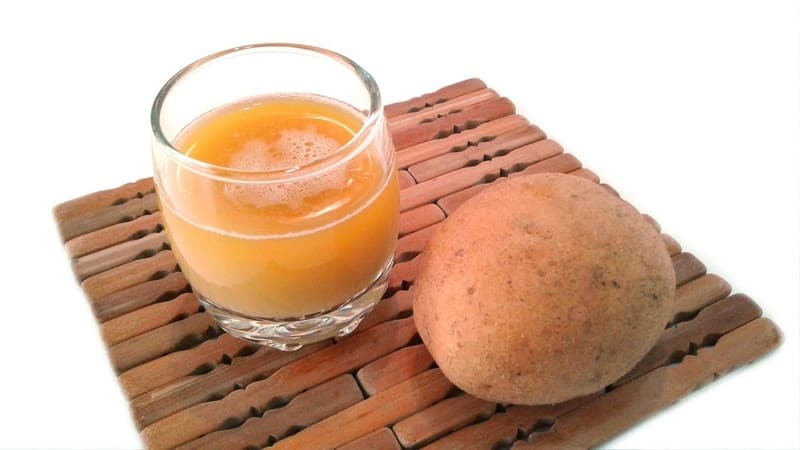
The effectiveness of treating heartburn directly depends on the quality and variety of potatoes. It is preferable to use your own harvest or those grown in guaranteed safe conditions. When buying potatoes, pay attention to their appearance: the tubers should be of medium size, without damage or signs of spoilage by agricultural pests.
Do not use greened tubers, since during storage they accumulate solanine, a toxic substance that can cause poisoning, headaches, and in large quantities cause coma.
Advice. To avoid damage to the dental enamel due to the high content of the vitamin ascorbic acid, it is recommended to drink the juice through a straw.
The recipe for making potato juice is standard. Then, depending on the underlying disease and the severity of heartburn, it is combined with other products that enhance its effect and are supplemented with new therapeutic effects.
How to make potato juice:
- Wash the potatoes thoroughly and pour boiling water over them. If desired, remove the peel.
- Grate the tubers or grind them in a meat grinder or blender.
- Transfer the pulp into gauze, folded in several layers, squeeze out the juice.
For erosive and ulcerative diseases of the gastrointestinal tract, take potato juice with honey and aloe.
The recipe for preparing the medicine is quite simple:
- Mix 50 ml of freshly prepared juice with 1 tbsp. l. honey and 50 ml aloe juice.
- Place the mixture in a water bath and cook for 10-15 minutes. Take chilled.
Potato juice goes well with carrot, beet and celery juice in equal proportions.
How to prepare the body for treatment with potato juice
To change the situation for the better, get rid of the burning sensation in the chest, and stop the progression of the disease, it is important to first (at least 5 days before) adjust your diet:
- Exclude foods that stimulate the process of gastric secretion: fried and fatty foods, alcohol, carbonated drinks, spices, smoked foods, coffee.
- Include quickly digestible and light dishes in your diet: baked fruits, dairy products, cereals, omelettes, boiled fish and meat dishes.
- Limit foods that provoke flatulence: grapes, legumes, kvass, bread, raisins.
- Eat small meals at least 5-6 times a day, but in small portions. Avoid overeating during the day, especially at night.
- All food is steamed, boiled or baked.
- Eating regularly - at the same time.
Therapeutic nutrition itself reduces inflammation in the stomach, normalizes its functions, and reduces the severity of heartburn. By correcting your diet, you will prepare the body for juice therapy, cleanse the intestines of waste and toxins, which in turn will increase the effectiveness of treatment.
When is the best time to drink for heartburn?
Experts recommend taking potato juice in the morning on an empty stomach or 30 minutes after a meal. It is during this period that the acidic contents of the stomach enter the esophagus, which causes a pronounced burning sensation behind the sternum and other symptoms of indigestion.
Contraindications for use
Potato juice is not always healthy. It should be limited to people suffering from type 2 and type 3 diabetes. The vegetable contains a lot of sugars; after eating it, the level of glucose in the blood and the release of insulin sharply increase.
Potato juice for heartburn is contraindicated if you have a history of the following diseases and conditions:
- allergies on the product;
- gastritis with low acidity;
- diarrhea;
- any disease in the acute stage.
Is it possible to get heartburn after drinking potato juice?
For those who are interested in the question of whether there can be heartburn from potatoes, the answer is yes. Long-term treatment with potato juice, its use in the presence of contraindications, causes the opposite effect and leads to increased burning behind the sternum, nausea, vomiting, and stomach pain.
To avoid negative consequences, it is important to know how to properly take potato juice for heartburn and eliminate contraindications.
Read also:
Conclusion
Treatment of heartburn with potato juice is a universal and effective remedy that will not only reduce the intensity of chest burning, but will also help in the treatment of the underlying disease, as well as improve the health of the body as a whole. Most people leave positive reviews about the use of potato juice. Side effects are rarely reported, since fresh potatoes are mild and do not contain harsh chemicals.
If you intend to use potato juice for heartburn, we first recommend that you consult a gastroenterologist or other highly specialized doctor, and agree with him on the regimen of use and all subsequent actions.